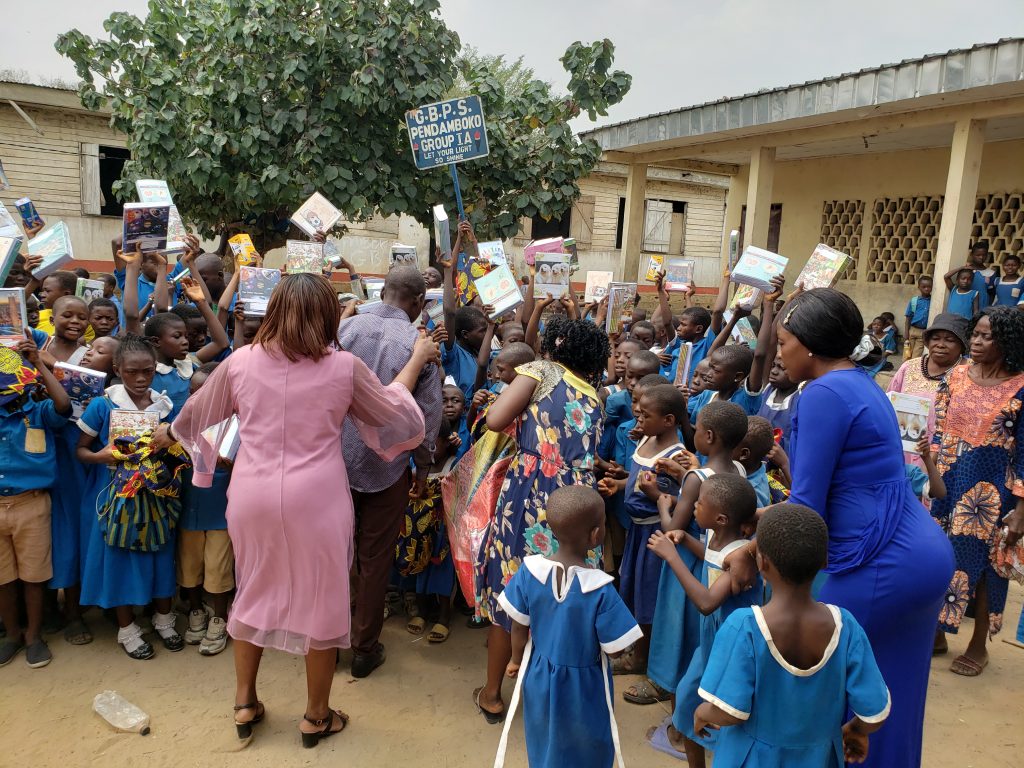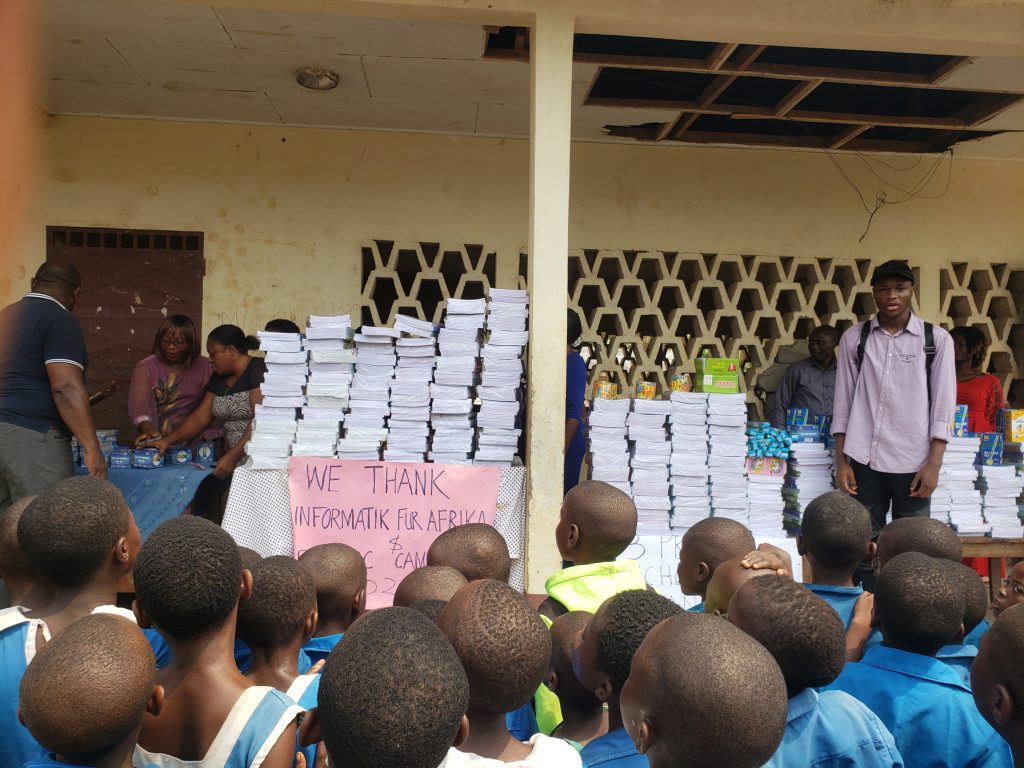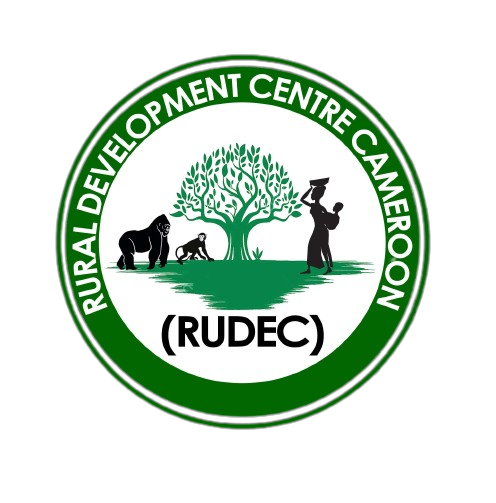Edu-Access Special Program
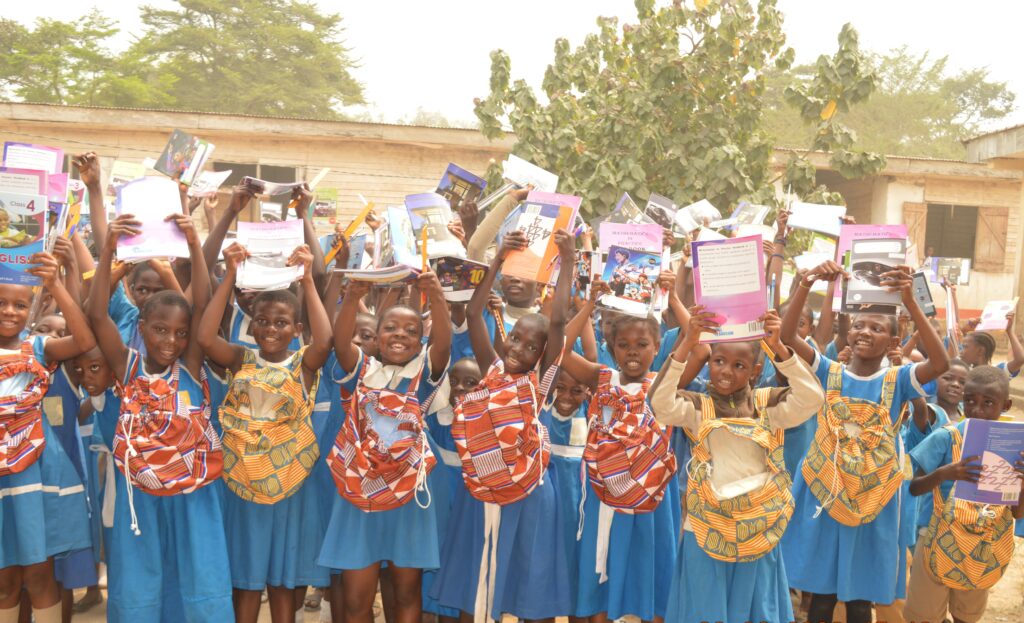
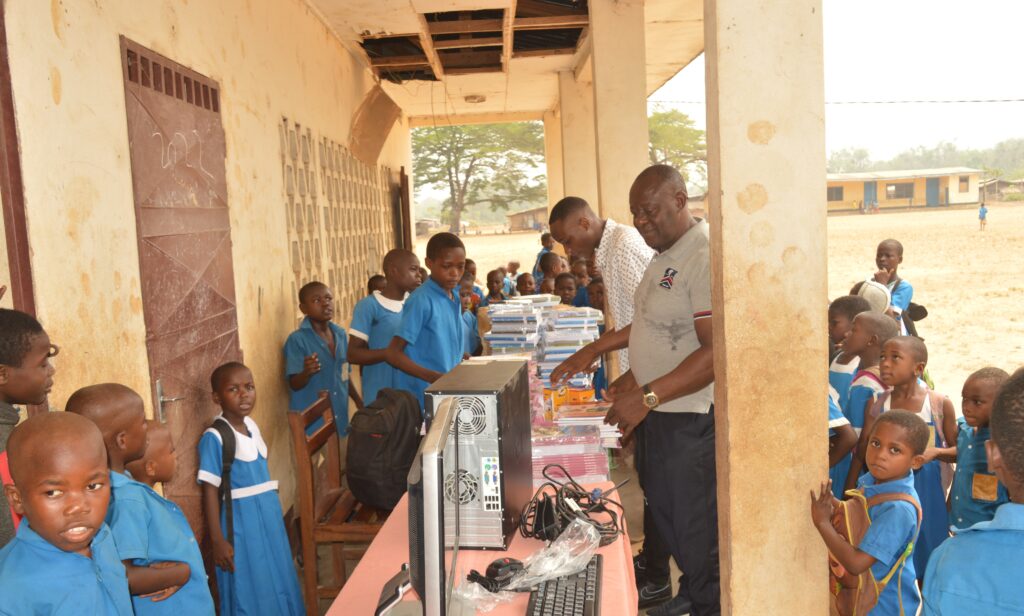
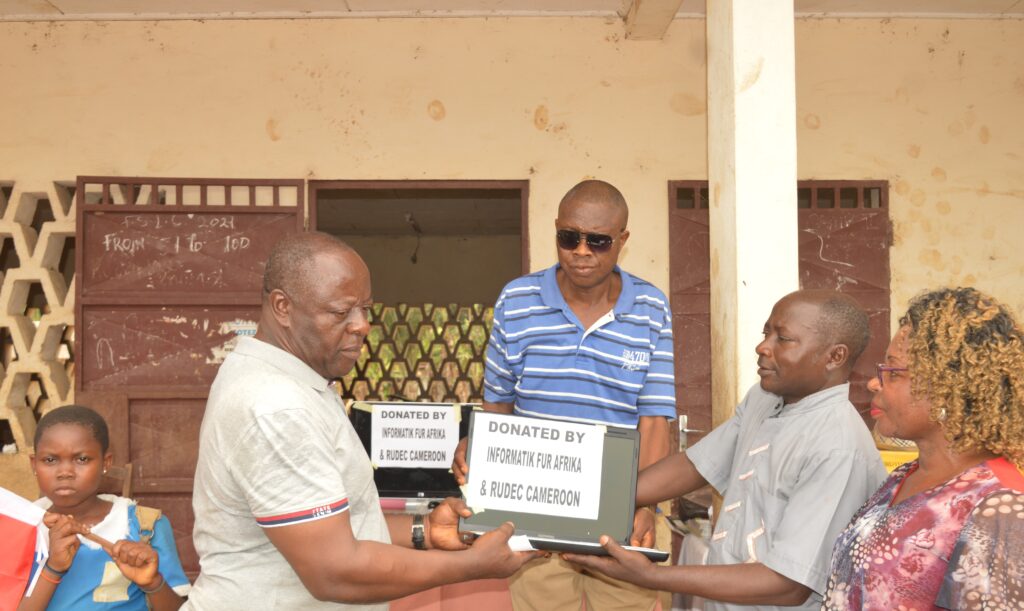
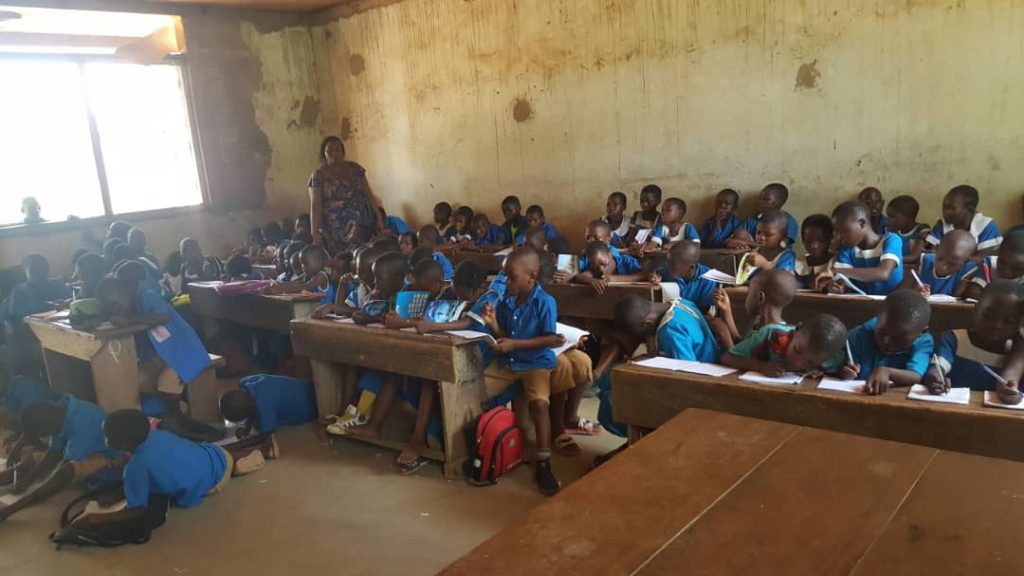
General Background
The right to education is enshrined in Article 26 of the Universal Declaration of Human Rights (UDHR). The constitution requires free and compulsory primary education in Cameroon, but a lack of resources and educational infrastructure has hampered implementation, especially for communities in the southwestern and Littoral regions of Cameroon. It acknowledges that the Cameroonian government has made remarkable efforts and good investments in education by providing public education from primary to secondary education, the training of more qualified teachers and an established curriculum.
But despite all the progress, Cameroon’s government still has a long way to go to meet global standards in education, economic development and sustainability. Population growth exceeds infrastructure growth. Communities suffer from overcrowded classrooms, poor sanitation, low wages and high unemployment, prompting many young Cameroonians to drop out of school and go abroad to look for training and job opportunities in Europe and the US. Unfortunately, some of them do not survive this trip.
Currently, there are too many poorly built schools with overcrowded classrooms, poor hygiene and sanitation facilities, lack of running water.
What is RUDEC doing?
RUDEC is committed to enabling education access to vulnerable children in rural communities where we operate; particularly in Pendamboko, Littoral region which currently harbors thousands of displaced children from the South west region owing to the anglophone crisis which has been plaguing the region for over 8 years now.
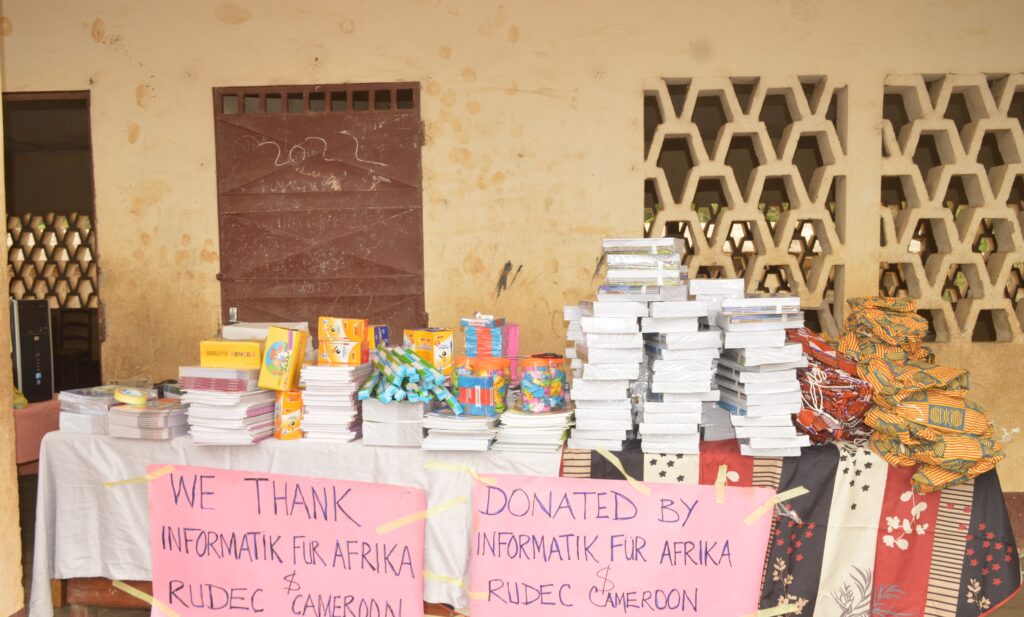
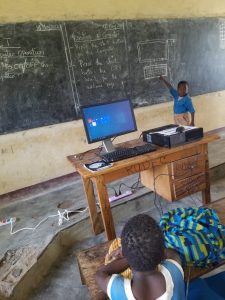
Some of our activities so far in this domain include:
- Yearly provision of didactic materials to underprivileged school children; between 2020-2024 RUDEC has supported more than 1500 children most of whom are displaced across 6 primary and secondary schools.
- Construction and renovation of school infrastructure; between 2020-2024 has constructed 3 new toilets that benefited 600 children and teachers in 2 schools.
- Establishment of water points in schools and the sensitization of school children on good hygiene and sanitation practices at school.
- Provision of the 10 set of computer desktops and laptops to rural schools; many rural school children had not seen or used computer devices prior and so school lessons were delivered only theoretically.
- Building the capacity of school teachers in delivering mental health lessons at school to displaced children in distress.
